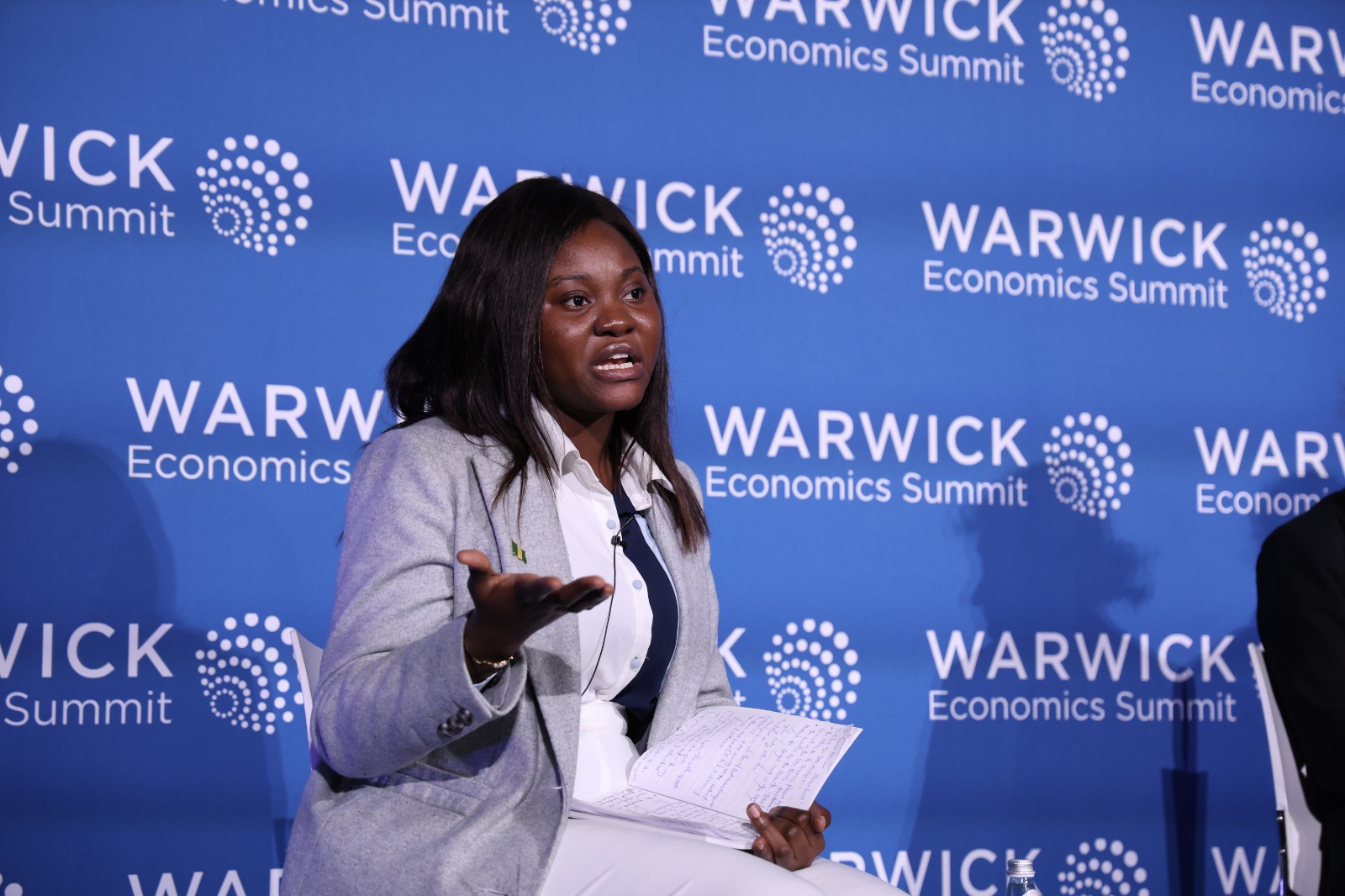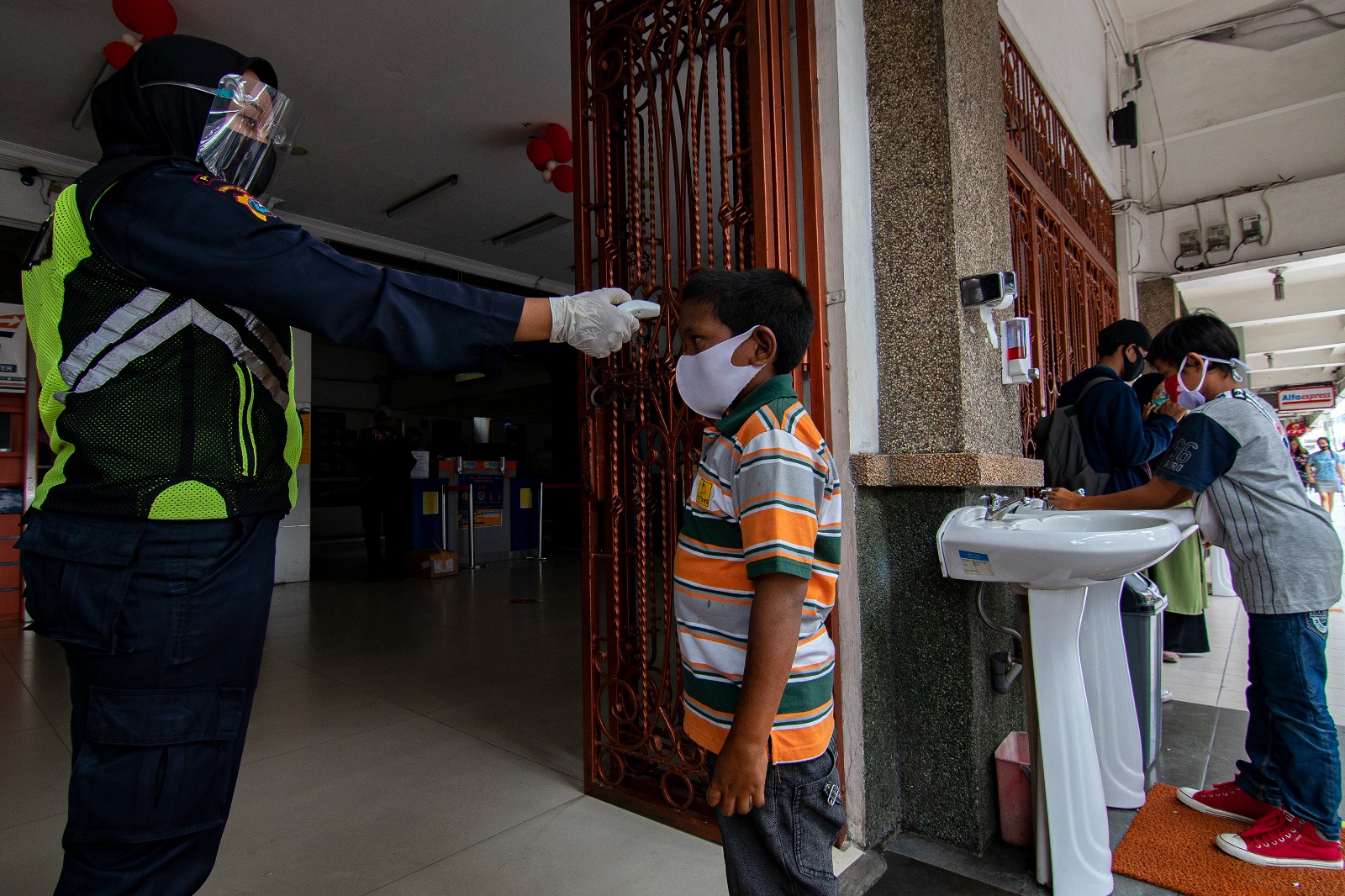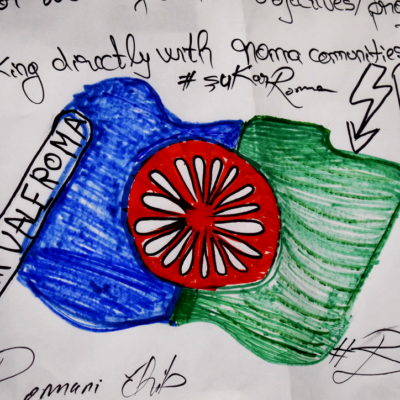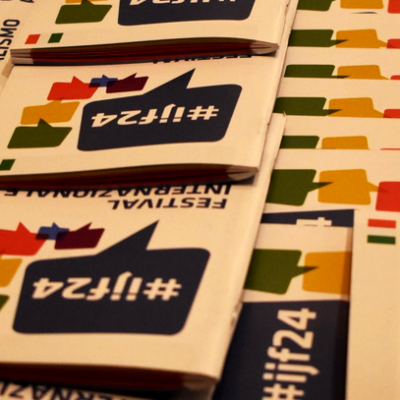With the emblematic blue of the United Nations and the logo of the World Health Organization behind him, Dr. Tedros Adhanom Ghebreyesus looks down on us from a screen. His virtual presence via Zoom at the Warwick Economics Summit (WES) is a reminder of the pandemic which began nearly four years ago.
The WHO chief spoke to students in early February at this year’s WES in Warwick University, the United Kingdom, to launch a new global campaign as part of its aim to get youth involved in boosting support for the Pandemic Accord, its pact to prepare for future pandemics.
The accord will focus on “pandemic prevention, preparedness and response” and is a priority for Dr. Tedros who has called it a “generational commitment that we will not go back to the old cycle of panic and neglect” following the COVID-19 pandemic.
The launch event at WES was organised as a conversation between students and Dr Tedros about their experiences of the pandemic. Seated below the giant screen are four students and the panel moderator, Iman El Kohen, who open up about how their lives were impacted as the world shut down in 2020.
Stalled education
“I lost one year of education during the pandemic,” says Elizabeth Saint-Wonder, a Nigerian delegate studying in the UK. She tells Dr Tedros, and the audience, that Nigeria was unprepared to face the healthcare crisis, impacting not only her but those around her.

The other students on stage, Catherine, from the UK, and Sergi and Sofia, from Spain, echo Elizabeth’s words, as they describe the difficulties of completing their school years during successive lockdowns, impacting both their academic and social lives.
The students voice their support for an accord, saying that work needs to be done to ensure the world is better prepared for the next pandemic.
“The decisions of the government will shape our future and we should ensure that the government is listening to young voices,” says Sofia.
In response, Dr. Tedros, looming large from the screen above, thanks the delegates, saying, “The energy and passion from young people will drive change and the accord.”
The Pandemic Accord
As the May deadline for countries to agree on the treaty approaches, the WHO is ramping up its efforts to get leaders around the world to resolve their disagreements and deliver the accord.
The agency is also trying to mobilise youth to put pressure on their governments. “Pathogens have no regard for the lines humans draw on maps. Nor for the colour of our [skin] or the size of our economies,” Dr Tedros tells students at the summit.

If it goes through in May, the pandemic accord will make history as only the second legally-binding health accord agreed between UN member states.
The proposed treaty seeks to expand on its International Health Regulations (IHR), agreed in 2005, which obliges countries to advise the WHO of any health emergencies within their countries.
The new accord would be legally binding for those who sign it, which has prompted criticism from many on the right of the political spectrum, especially in the United States, who warn that the WHO would then be able to “dictate” a country’s policies during a pandemic.
Such claims have been debunked, with the accord including specific reference to the sovereign right of states “to determine and manage their approach to public health, notably pandemic prevention, preparedness, response and recovery of health systems, pursuant to their own policies and legislation.”
Speaking at WES, Dr Tedros says, “WHO will not even be a party to the agreement. […] The agreement in itself is an exercise of sovereignty.”
Misinformation, however, continues to jeopardise the treaty, something that Dr. Tedros seeks to address at WES.

"You, your world, and your futur"
“It is likely you’ll face another pandemic in your lifetime,” Dr Tedros tells students. “We need you to raise your voices, to tell your leaders that you want this agreement, you want this accord, to counter the lies that there are underlying incentives.”
He encourages students to make their voices heard via social media, combating content that spreads misinformation by using their abilities as “digital natives” to mobilise those around them.
“Ultimately, the pandemic agreement is about you, your world, and your future,” Dr Tedros says. “We have a collective responsibility to protect future generations from the suffering we endured. As young people, you have the most to gain from a strong agreement.”
A youth-led approach?
“Everyone knows about climate change, it’s the first issue that pops into the minds of young people,” says Lancelot Wilson, one of the three chief organisers at WES. “It’s easier to empathise with polar bears than with the idea of some invisible virus and an unknown future.”
The partnership between the summit and the WHO is a chance for youth to learn more about the pandemic accord and get involved, Wilson explains.

Students seem to be in agreement, telling Orange Magazine that they support the proposed treaty.
Chukwudumebi Okeke, a Nigerian student from University of Essex, is enthusiastic in her response to Dr Tedros’ talk. “One thing he said was to use our voice, and those of us who aren’t able to to help professionally can help by creating awareness,” she says.
A Leeds University student from Tanzania agrees: “We live in a digital world, and there are so many people around the world who have access to social media,” says Machariah Mumba. “So I think using those platforms is really important [to communicate about the accord].”
Mumba also says that good leadership is key, saying that “institutions have to show a way for our leaders and then we’ll follow.”
For now, world leaders will continue to debate on the wording of the accord, and Dr. Tedros has urged them to redouble their efforts to establish the accord.
“There are still areas of difference that need further negotiation between countries. None of them are insurmountable,” he said in February at the World Governments Summit in Dubai. “If countries listen to each other’s concerns, I am confident they can find common ground and a common approach.
During WES2024, a global campaign was kickstarted with the goal of engaging the youth in sharing their experiences with the COVID-19 pandemic as well as to promote discussions about the proposed pandemic accord.
Anyone interested in sharing their experiences can participate by using the hashtags #AreWeReady and #PandemicAccord when posting on social media. The draft agreement is due to be presented at the 77th World Health Assembly in May 2024.




